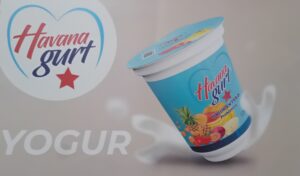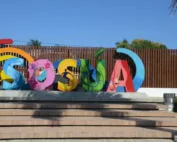A Made in Italy taste in Cuba

By Daily Pérez Guillén
A “Made in Italy” taste is increasingly appreciated among Cuban palates. Private and state-owned businesses are incorporating raw materials, equipment and ways of making ice cream, cheese, pasta, yogurt and other foodstuffs.
This is a moment of opportunity in Cuba, as several of the entrepreneurs with whom the TTC team exchanged views commented during the International Food, Beverages, Packaging and Food Technology Fair, held a few weeks ago at the Pabexpo fairgrounds in Havana.
This was also expressed by the Italian Ambassador to Cuba, Roberto Vellano, in a dossier written for participants of the event: “We are pleased to note the presence of a large and qualified group of Italian companies, which also includes new companies in Cuba. This is an important sign, particularly considering the complex moment that the economy is experiencing and that inevitably affects the commercial and financial situation of many Italian companies active in this market. Nevertheless, they continue to work with extraordinary determination to create new growth opportunities.”

Lácteos Mariel plans to start producing yogurt in July, with a potential capacity of 37,000 liters per day.
Lácteos Mariel is one such company committed to taking off in the Cuban market. Deputy Director, Luis Alberto Sosa Carrasco, explained, “We start here with a 25-year contract that can be extended for another 25 years.” The business can trace its roots to the Bellati family, who have advanced in the agro-industrial sector for more than a century, and hopes to continue this development beyond Italy’s borders. The company was established in the Mariel Special Development Zone in 2019 and following the COVID-19 period, it launched production in February this year, despite not having fully completed the investment plan.
“We are gradually integrating production upwards. We have started with those products that require less technological processes, that is, less infrastructure, such as cheese and butter. The first phase investment should be completed in the summer because we are already in the process of contracting the second phase,” Sosa Carrasco explained.

Luis Alberto Sosa Carrasco, deputy director of Lácteos Mariel. Photo: TTC
“Our intention was to occupy at least thirty percent of this sector of the market, especially for tourism. What is the scenario now? The Cuban dairy industry has difficulties in obtaining raw material and its technology is obsolete. Today the competition are small private businesses. Independently, they are not big producers, but as a whole, they represent significant competition. The solution we have sought is to produce on a large scale. The initial project was to process around 15,000 liters of milk per day. Today we are processing 50,000 liters from powdered milk. That is to say, we reconstitute the milk and use an Italian recipe that was created more than fifty years ago and one-hundred-percent Italian technology. The processes and technology are family know-how. We produce these volumes with international prices and quality.”
In just a few weeks, Lácteos Mariel expects to start a new production line. “We will start producing yogurt in July with a potential capacity of 37,000 liters per day. In the case of ice cream, we have a capacity of four tons of ice cream per day.”

Roberto Morisi and Samuel Fabbri, executives of the “Cocinando en Cuba” company. Photo: TTC.
Another company launching in the Caribbean archipelago has a name that sumamrizes its interest in this market: “Cocinando en Cuba [Cooking in Cuba] has been based in Italy for a long time and in Europe for more than twenty years. It distributes everything related to industrial kitchens. We are talking about the sale of machines, equipment and furniture for restaurants, ice cream parlors, hotels and food companies. Here we mainly work with SMEs, but we are open to any type of business, both state and private,” the company representative in Cuba, Samuel Fabbri, explained.
Cocinando en Cuba executives emphasize their interest in guaranteeing an assistance service for any type of product in their portfolio, which includes grills, fryers, pasta machines, potato cutters, meat slicers, mixers, automatic hamburger machines and ice cream preservers, among others. “We are aware of many cases of equipment that does not work due to lack of parts. We are also willing to train technicians.”
“We are convinced that it is a particular historical moment for Cuba, where it is necessary to enter because it is an interesting market, plus we have a love for the island and we can mix trade and our love for the country,” Fabbri revealed.
Raso Group is not far behind. Based in Cuba since 2017, it offers machinery and raw materials for the production of ice cream, breads, pastries and catering in general, as well as the knowhow for the preparation of these products. Cuba’s major private ice cream parlors use both raw materials and equipment that this company imports from Italy. The firm also forges alliances with international chains in the tourism sector, such as Meliá and Iberostar, as Commercial Director, Michele Parollini, told TTC.

Ice cream produced by Raso Group. Photo: TTC.
ICE, the Italian government agency responsible for the foreign promotion and internationalization of national companies, welcomes these business initiatives. “We carry out information, assistance, consulting, promotion and training activities for small and medium-sized enterprises, using the most modern promotional and multichannel communication tools, with the aim of strengthening the Made in Italy excellence across the world,” reads the note signed by Simona Autuori, ICE director in Cuba, in the small catalog circulated at the 2024 International Food, Beverages, Packaging and Food Technology Fair to promote the Italian presence at the Pabexpo fairgrounds.

MORE NEWS










